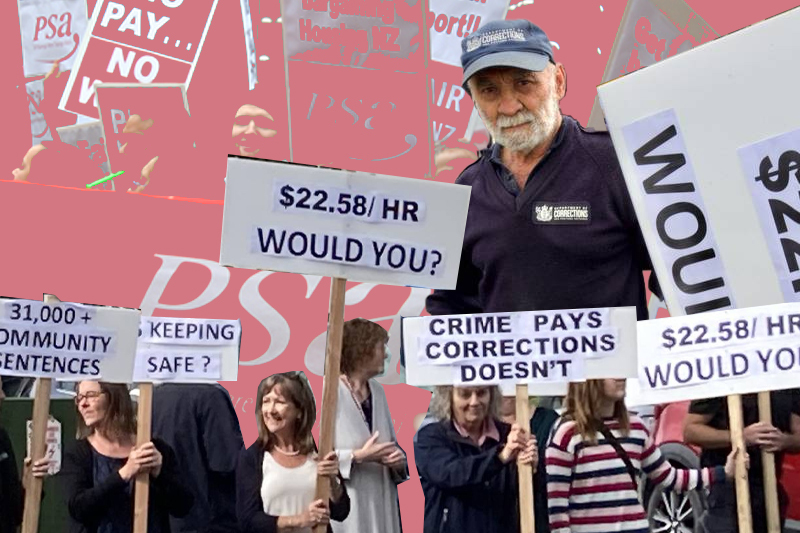
over 2000 community correction workers strike for higher pay
Following nine months of negotiations, nearly 2000 community corrections employees rejected the department’s pay offer and went on strike for better pay.
Community Correction Workers Strike begins-
Today at 2:00 pm, members of the Public Service Association Te Pkenga Here Tikanga Mahi went on a two-hour strike.
Those striking include those in charge of people with home detention orders or electronic monitoring sentences, those who support bail, and those in charge of prison initiative programs.
The Department of Corrections’ residential facilities will be left empty, the courts won’t have representatives from the department present, community work crews won’t be able to complete their tasks, electronic monitoring won’t be checked, and sentences and orders such as parole and release conditions won’t be managed.
Keep Reading
“Crime pays, Corrections doesn’t” protesters held signs outside the Hastings courthouse.
Workers’ decision to strike is disappointing, but PSA lead organizer Josephine O’Connor said members are insulted by the most recent offer because it ignores the true pressures that the cost of living crisis is putting on their households.
“If Corrections fails to come to the table with a renewed offer which properly recognizes the important work our members do to keep our communities safe, the retention and recruitment problems it faces will only get worse,” O’Connor said.
She claimed that some of their members rely on food assistance, manage their finances with several credit cards, and pick up extra work working supermarket night shifts.
According to O’Connor, “It’s devastating for people who should be respected public service workers.”
Additionally, she claimed that the department’s payment structure and the recent proposal are based on antiquated notions that ignore the realities of the present, including the fact that the inflation rate is 7.2%, burnout is viewed as “just part of the job,” and that filling in for frequent staff shortages necessitates carrying potentially hazardous amounts of work.
“This is a vital, 24/7 operation and the pay is appalling,” the letter reads. “You won’t see them featured in Corrections TV advertisements chatting at BBQs, they don’t wear uniforms, they are mostly women, and they manage 75% of the people under Corrections’ care.”
She added that Mori people face discrimination in the pay system.
On April 20 and 27, more activity is anticipated. Since 2001, there hasn’t been a strike action.









